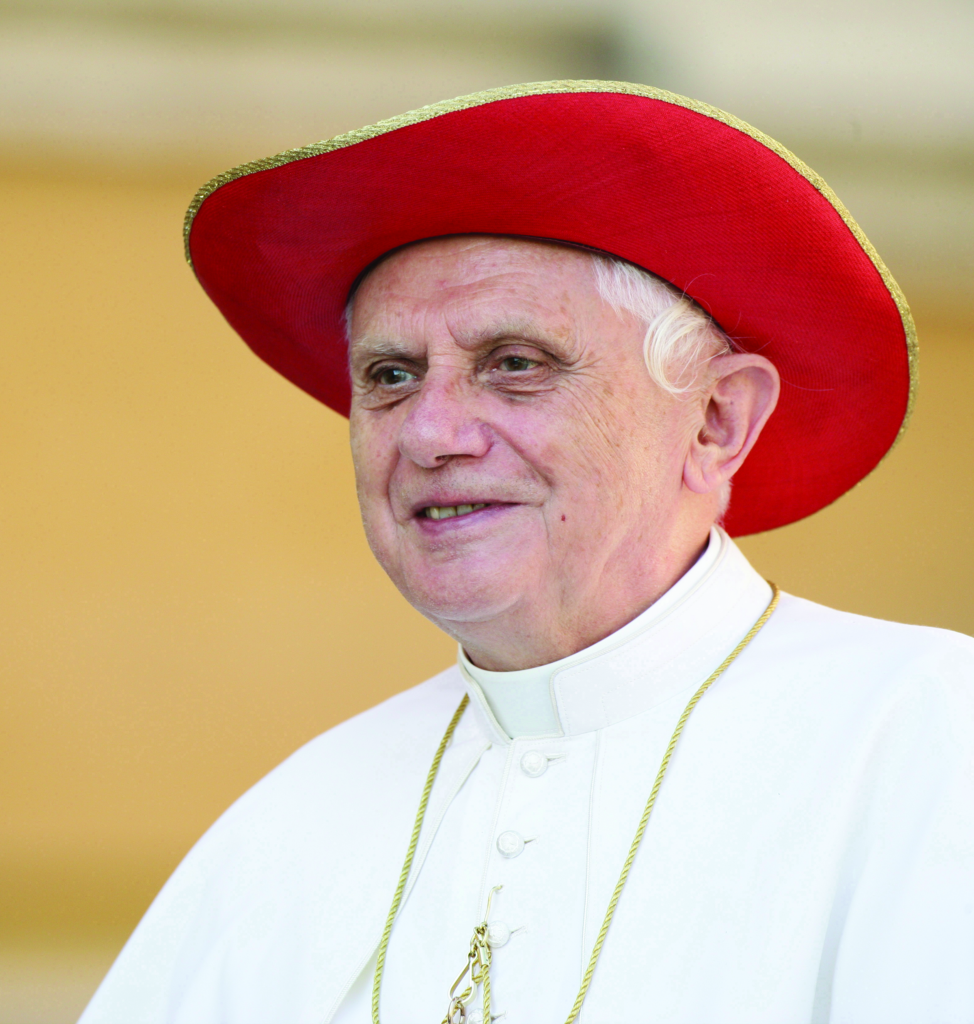By Federico Lombardi

Pope Benedict XVI at an audience in St. Peter’s Square in September 2006 (Photo Grzegorz Galazka)
Thus we come to the penultimate, but in ecclesial terms, most important, stage of Ratzinger’s long career, also unexpected like the previous two. Even so, upon the death of John Paul II, there were several reasons to look toward him as a possible successor: the prolonged and close collaboration in full harmony with the previous Pope, the eminent qualities of intelligence and spirit, the absence of any ambition to power that placed him above the parties, to which is finally added the serene mastery with which, as Dean of the College of Cardinals, he conducted the acts and presided over the rites involved in the preparation and implementation of the Conclave. Despite his advanced age, the factor of continuity quickly prevailed. On April 19, at age 78, Joseph Ratzinger became the 265th Pope of the Catholic Church, choosing the name of Benedict, the sixteenth to bear that name, and presenting himself to the people gathered in St. Peter’s Square as a “simple and humble worker in the vineyard of the Lord.”
Despite the new Pope’s age, the pontificate, which would last just under eight years, was to be marked by activity in Italy and abroad. In addition to the “ordinary” activity of celebrations and audiences at the Vatican, we can recall 24 trips abroad, several of them crowned with great success and popularity, with 24 countries on five continents visited; 29 trips within Italy; five Assemblies of the Synod of Bishops — three ordinary general ones: On the Eucharist (2005, already convened by John Paul II); on the Word of God (2008); on the Promotion of the New Evangelization (2012); and two special ones: for Africa (2009) and for the Middle East (2010) — each followed (except the last one in 2012) by an important apostolic exhortation.
Other major magisterial documents include three encyclicals. Also of particular importance is the Letter to Catholics in the People’s Republic of China, Pentecost 2007. Also worth mentioning are the “Years” by which Benedict XVI intended to give coherence and direction to his pastoral leadership of the Church. After leading to its completion the “Year of the Eucharist,” already begun by his predecessor, he successively proclaimed the “Pauline Year” (June 28, 2008 – June 29, 2009, for the bi-millennium of the birth of the Apostle), the “Year for Priests” (June 19, 2009 – June 11, 2010, for the 150th anniversary of the death of the Curé d’Ars), and finally the “Year of Faith” (begun on October 11, 2012, on the 50th anniversary of the opening of the Second Vatican Council). Regarding the latter, which the Pope did not personally lead following his resignation, it is fair to note what he himself said about it, responding to this question from Peter Seewald: “What do you think is, in retrospect, the hallmark of your pontificate?” “I would say,” Benedict replied, “that it is well expressed by the Year of Faith: a renewed encouragement to believe, to live a life starting from the center, from the dynamism of faith, to rediscover God by rediscovering Christ, therefore to rediscover the centrality of faith.”
These words lead us to reflect directly on the priorities of the pontificate as a key to its interpretation. Benedict spoke about them explicitly in a very particular, passionate and intense document: the Letter to the Bishops of March 10, 2009, written in the aftermath of the criticism and attacks on him following the withdrawal of the excommunication of the bishops who followed Marcel Lefebvre and the “Williamson affair.” This seems almost to serve to “account for” his governance of the Church. “In our time when in vast areas of the earth the faith is in danger of dying out like a flame that can no longer find nourishment, the priority that stands above all is to make God present in this world and to open to the people access to God. Not to any god, but to that God who spoke at Sinai; to that God whose face we recognize in love driven to the end (cf. John 13:1), in Jesus Christ crucified and risen.”
The shy German professor who only wished to retire and write books was elected the 265th Pope. He called himself a “humble worker in the vineyard of the Lord”





Facebook Comments